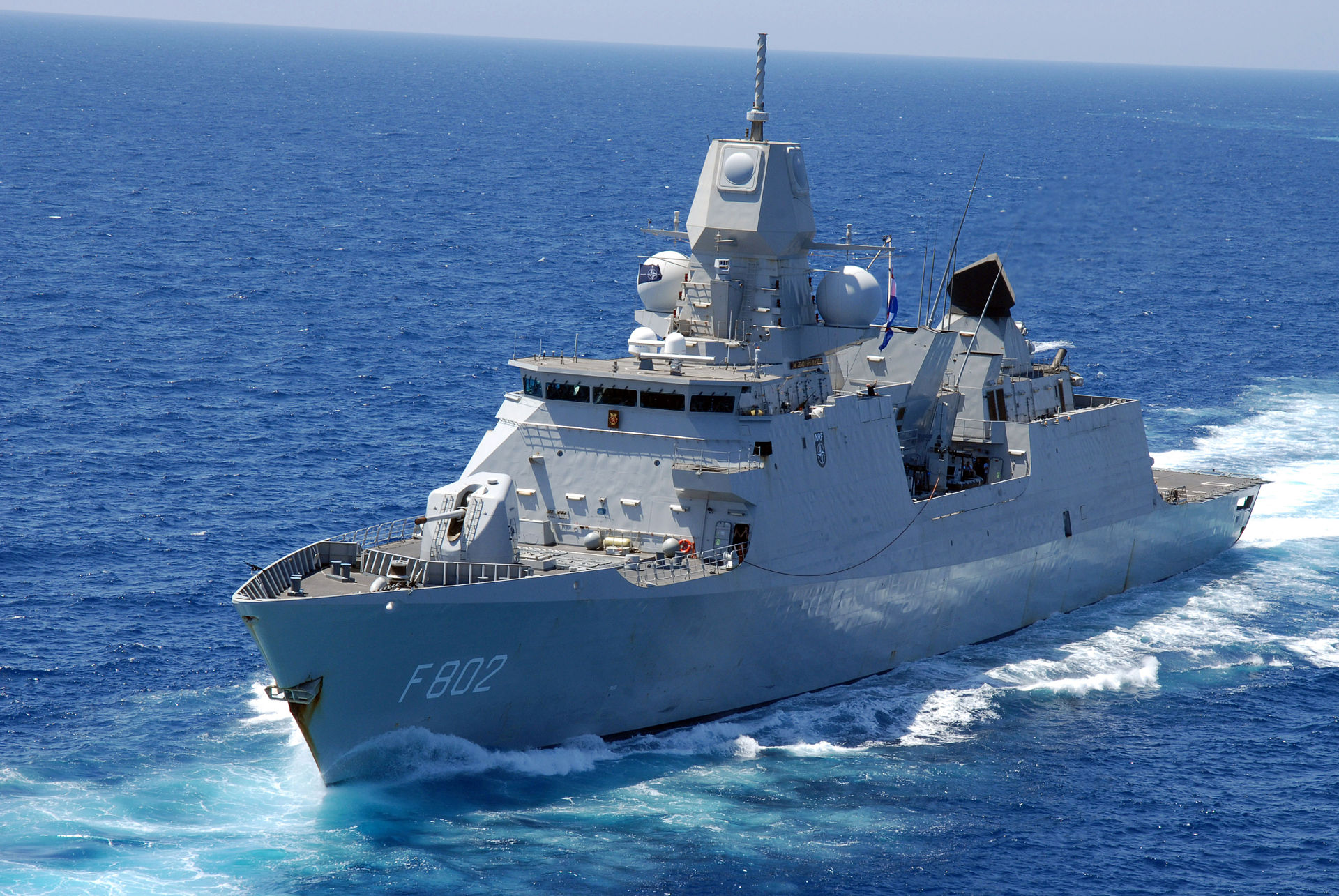Berlin has selected Dutch shipbuilder Damen to supply the next fleet of frigates, in a near-7-million-dollar deal. The decision comes as an earthquake in a country who traditionally went domestic in such matters and further darkens the future of national ThyssenKrupp shipyards.
German shipyards, owned by industrial ThyssenKrupp, are a major contributor to Germany’s commercial success and a key factor in Berlin’s unusual stance in the fold of nations: Germans participate in virtually no military operations, but arm much of the world with their tip-top weapons industry. Germany collaborates closely with European partners from France, England and Italy, and sells to those countries as well. It operates in both military and civilian sectors.
But Dutch competitor Damen has stolen Germany’s show, by winning a large defense procurement contract for the German Navy, with the supply of large multi-mission MKS 180 missions. These 9000-ton vessels will be able to roam seas globally and cover the entire spectrum of tactical missions. ThyssenKrupp had also thrown its hat in the ring, but endured the first effects of Berlin’s new industrial defence policy.
In the new policy which Germany has drafted, but still needs to validate with Parliament, national industries would be favored, in the sense that tenders would no longer be obliged to include foreign suppliers, but would expose German industrial companies to foreign competition, which it had somewhat been protected from, until now. The policy is designed to “preserve key technology in Germany’s security industry fabric”.
Germany has been promoting the integration of Europe’s military industrial firms. The hybrid policy seeks to simultaneously expose German industrial firms to foreign competition in order to maintain competitiveness, but shield them from it in order to ensure that Germany would retain its position on the global market. “The federal government is increasingly relying on European co-operation. This even includes companies of different member states joining forces with one another without losing sight of their own national interests. Pooling technological strengths will have a decisive and positive impact on the economic significance of European projects in the face of international competition“, defence specialist Stephen Kuper reported.
Germany has noted the lessons from Australia’s recent moves to consolidate its naval power, through the Naval Shipbuilding Plan, for which Canberra will be spending nearly 100 billion dollars, in coming decades. “The goal of the Naval Shipbuilding Plan is to ensure that the regeneration of the Royal Australian Navy over the coming decades will ensure both a cost-effective solution for the government [and] provide Navy the assured capability to fight and win. The National Naval Shipbuilding Office has been established to implement the Naval Shipbuilding Plan”, the Australian defence ministry stated.
Germany’s similar initiative to develop and protect its national shipbuilding industry was deemed necessary, facing mounting global competition, and following a downward trend of ThyssenKrupp after a long string of industrial mishaps and commercial complications. A delicate balance of exposure to global competition and protection from it will likely provide Germany’s industrial shipyards with the secure conditions it needs to stabilize its future.

After a few years as a contract serviceman, I graduated with a degree in business law, and worked in defence industry related groups. This has given me the opportunity to work closely on a number of export markets related topics. As a result, I feel a certain legitimacy to write on these subjects.





